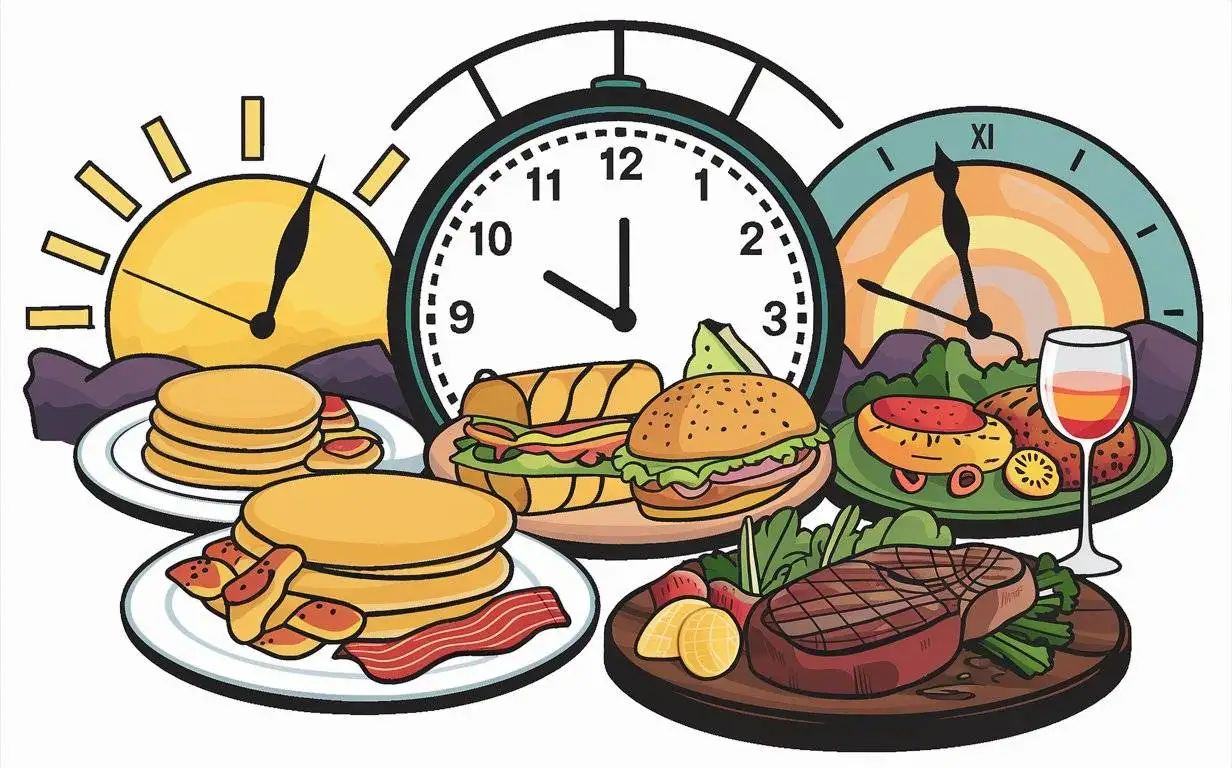When it comes to eating, timing is everything. Many people focus on what they eat, but when they eat can be just as important. Choosing the best times to eat can have a significant impact on your health, energy levels, and overall well-being.
I’ve discovered that eating at the right times can make a world of difference in how I feel throughout the day.
In this blog post, we’ll explore the optimal times to eat your meals: breakfast, lunch, and dinner. We’ll also delve into why eating at these times matters and how it can benefit you.
Whether you’re looking to improve your energy, boost your metabolism, or simply feel better, understanding the best times to eat is a crucial part of the puzzle.
So, let’s dive in and discover the best times to eat to enhance your daily routine and health.
Best Times To Eat
When it comes to the best times to eat, there’s no one-size-fits-all answer.
However, there are some general guidelines that can help you determine the best times for your meals.
Breakfast, lunch, and dinner should be spaced out to maintain energy levels and keep your metabolism running smoothly.
The key is to eat at times that work best for your body and lifestyle.
Read on to find out more about the best times for each meal.
Breakfast
Breakfast is often called the most important meal of the day, and for good reason.
Eating a healthy breakfast can set the tone for your entire day. The best time to eat breakfast is within an hour of waking up.
This helps kickstart your metabolism and provides the energy you need to start your day off right.
I’ve found that eating breakfast between 6:00 AM and 8:00 AM works best for most people.
This timeframe allows your body to wake up and start burning calories.
A good breakfast includes a mix of protein, healthy fats, and carbohydrates to keep you full and energized.
Think of options like eggs, whole-grain toast, and fruit.
Lunch
Lunch is another crucial meal that helps maintain your energy levels. Ideally, you should eat lunch between 12:00 PM and 2:00 PM.
This timing allows your body to refuel after the morning’s activities and keeps you going through the afternoon.
A well-timed lunch can prevent the mid-afternoon slump that many people experience.
Your lunch should be a balanced mix of protein, carbohydrates, and vegetables.
A salad with grilled chicken, a quinoa bowl with veggies, or a sandwich with whole grain bread can be excellent choices.
Eating lunch at the right time ensures that you remain productive and energetic throughout the day.
It also helps in regulating blood sugar levels, which is crucial for maintaining a healthy weight and preventing chronic diseases.
Dinner
Dinner should be the lightest meal of the day and consumed well before bedtime.
The best time to eat dinner is between 6:00 PM and 8:00 PM.
Eating dinner early gives your body enough time to digest the food before you go to sleep.
This practice can improve sleep quality and prevent weight gain.
A lighter dinner might include grilled fish with steamed vegetables, a small serving of lean meat with a side salad, or a vegetarian stir-fry.
Eating late at night can lead to digestive issues and disrupt your sleep patterns.
By having dinner at the right time, you allow your body to process the meal efficiently, ensuring you wake up feeling refreshed and ready for the new day.

Eat at the Right Times
Eating at the right times can have numerous health benefits.
Regular meal times help stabilize your blood sugar levels, which is crucial for maintaining energy and preventing mood swings.
When you eat at consistent times, your body becomes accustomed to a routine, which can improve digestion and metabolism.
Additionally, eating at the right times can aid in weight management.
When your body knows when to expect food, it can regulate hunger hormones more effectively.
This means you’re less likely to experience intense hunger or overeat.
Planning your meals and sticking to a schedule can make a big difference in how you feel and function throughout the day.
Consistency is key, so try to eat your meals around the same time each day.
FAQ About Times to Eat
Can I skip breakfast if I'm not hungry?
While it's common to not feel hungry in the morning, it's important to eat something small to start your metabolism.
Even a light snack like a piece of fruit or a yogurt can make a difference.
What if I have to eat dinner late?
If you must eat dinner late, try to keep it light and avoid heavy, rich foods.
This can help minimize digestive issues and ensure better sleep.
Is it okay to snack between meals?
Yes, healthy snacks can help maintain energy levels and prevent overeating at main meals.
Choose snacks like nuts, fruits, or yogurt.
How important is meal timing for weight loss?
Meal timing can play a significant role in weight loss by regulating hunger hormones and preventing overeating. Consistent meal times help your body maintain a steady metabolism.
Can irregular eating times affect my health?
Yes, irregular eating times can lead to unstable blood sugar levels, poor digestion, and disrupted sleep patterns.
Sticking to regular meal times can improve your overall health.
Should I eat differently on weekends?
It's best to maintain a consistent eating schedule even on weekends. This helps keep your body's internal clock regulated and supports overall health.
Key Takeaways
- Meal timing is crucial for maintaining energy levels and overall health.
- Eating breakfast, lunch, and dinner at the right times can improve metabolism and well-being.
- Consistency in meal times helps regulate your body’s internal clock.
Choosing the best times to eat can enhance your well-being, energy levels, and overall health.
By paying attention to when you eat, you can create a balanced routine that supports your body’s natural rhythms.
Remember, it’s not just what you eat, but also when you eat that makes a difference.
Enjoy your meals at the right times and feel the positive impact on your daily life!




